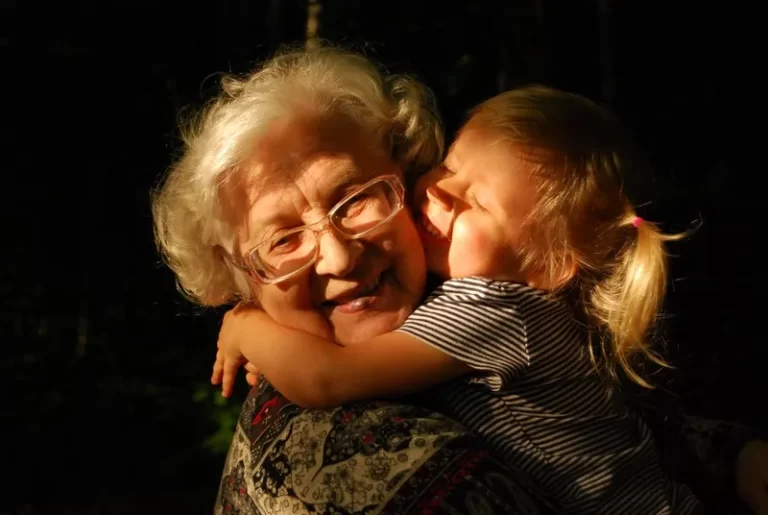Table of Contents
- The Evolution of Traditional Family Functions
- Impact of Globalization on Family Functions
- The Role of Technology in Shaping Family Functions
- Conclusion
The family, as a fundamental social institution, has undergone significant transformations in recent decades. Traditional family structures and functions, once considered stable and uniform, are now marked by diversity and fluidity, reflecting broader social, cultural, and economic changes. These shifts have been influenced by various factors, including increased divorce rates, the rise of LGBTQ+ families, the prevalence of single-parent households, and the impact of globalization and technological advancements. For A-level sociology students, understanding these contemporary changes in family functions is essential for analyzing how families adapt to and reflect the evolving needs and expectations of society.
The Evolution of Traditional Family Functions
Historically, the family has been viewed as a stable institution responsible for fulfilling several key functions essential to societal stability and individual well-being. These functions include reproduction, socialization, economic support, and the stabilization of adult personalities. The nuclear family—typically consisting of two married parents and their biological children—was long considered the ideal model for fulfilling these functions. However, contemporary social changes have challenged and reshaped these traditional family roles, leading to new family forms and functions that reflect the diversity of modern life.
Increased Divorce Rates and Changing Family Dynamics
One of the most significant changes in family life over the past few decades has been the dramatic rise in divorce rates. In the UK, divorce became more accessible following the Divorce Reform Act of 1969, which introduced the concept of “irretrievable breakdown” as grounds for divorce. This legal change, coupled with shifting social attitudes towards marriage and divorce, led to a significant increase in the number of marriages ending in separation.
The rise in divorce rates has had profound implications for family functions. Traditionally, the family was seen as a lifelong, stable unit responsible for raising children and providing emotional support. However, with the increase in divorce, many families have experienced disruptions to these functions. Children of divorced parents often navigate complex family dynamics, including split households, shared custody arrangements, and blended families with stepparents and stepsiblings. While some families manage these changes successfully, others may struggle with the emotional and logistical challenges that divorce presents.
Despite the challenges, the rise in divorce rates has also led to a greater acceptance of diverse family forms. Single-parent families, cohabiting couples, and blended families have become more common, reflecting a shift away from the traditional nuclear family model. These changes highlight the adaptability of families in responding to the needs and circumstances of their members, even as they challenge traditional notions of what a family should look like.
The Rise of LGBTQ+ Families
Another significant change in contemporary family life has been the increasing visibility and acceptance of LGBTQ+ families. In recent years, legal and social progress has enabled same-sex couples to marry, adopt children, and form families that were previously unrecognized or marginalized by society. The legalization of same-sex marriage in the UK in 2014 marked a major milestone in the recognition of LGBTQ+ families, allowing these families to access the same legal rights and protections as heterosexual couples.
LGBTQ+ families challenge traditional family functions by redefining the roles of parents and caregivers. In many cases, LGBTQ+ families emphasize egalitarian relationships, where both partners share responsibilities for childcare, household management, and financial support. This shift towards equality reflects broader social changes that challenge traditional gender roles and promote greater flexibility in family functions.
Moreover, LGBTQ+ families often create chosen families—networks of supportive friends and loved ones who may or may not be biologically related. These chosen families provide emotional support, care, and community for individuals who may be estranged from their biological families due to their sexual orientation or gender identity. The rise of LGBTQ+ families highlights the evolving nature of family functions, demonstrating that families can be formed in diverse ways that reflect the values and needs of their members.
The Prevalence of Single-Parent Families
Single-parent families have become increasingly common in contemporary society, reflecting changes in marriage patterns, divorce rates, and social attitudes towards parenting. In the UK, single-parent households now constitute a significant portion of all families, with many children being raised by one parent, typically the mother. This shift has significant implications for family functions, as single parents often take on multiple roles and responsibilities that were traditionally shared between two parents.
Single-parent families may face unique challenges, including financial strain, limited access to childcare, and the need to balance work and parenting responsibilities. Despite these challenges, many single-parent families are able to provide stable, supportive environments for their children. The rise of single-parent households has also led to changes in social policies, with increased recognition of the need for support services, such as affordable childcare, housing assistance, and flexible work arrangements.
The prevalence of single-parent families challenges traditional notions of the family as a unit with clearly defined roles for mothers and fathers. Instead, it highlights the diversity of family forms and the capacity of individuals to fulfill multiple functions within the family, even in the absence of a partner.
Impact of Globalization on Family Functions
Globalization has had a profound impact on family functions, reshaping the ways in which families interact with the wider world. As economies become increasingly interconnected, families are influenced by global labor markets, migration patterns, and cultural exchanges. These changes have led to new family forms and functions that reflect the realities of a globalized world.
Migration and Transnational Families
One of the most significant effects of globalization on families is the rise of transnational families—families that are spread across multiple countries due to migration. In many cases, one or more family members may migrate to another country in search of better economic opportunities, while the rest of the family remains in the home country. This can lead to complex family dynamics, as family members maintain relationships across borders through technology and remittances.
Get the full article AD FREE. Join now for full access to all premium articles.
View Plans & Subscribe Already a member? Log in.





